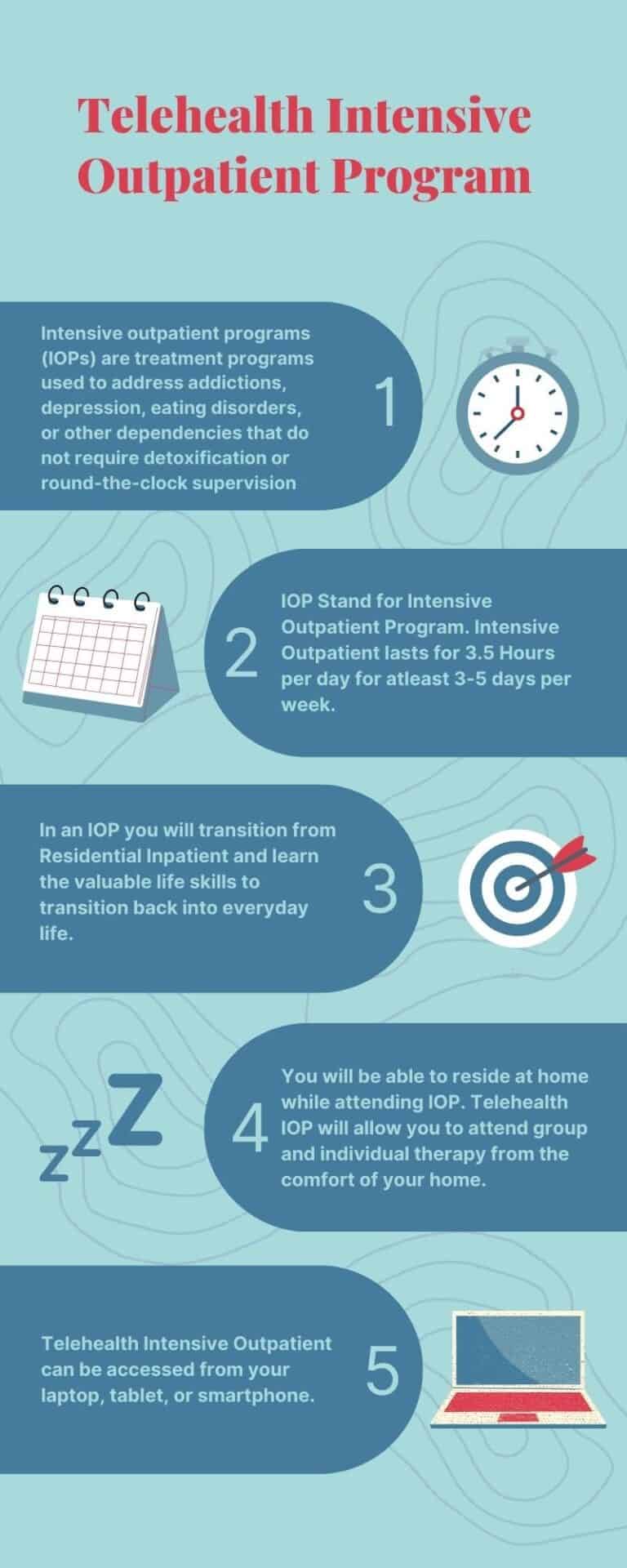Intensive Outpatient Program (IOP): A Versatile Solution for Dependency Therapy.
Intensive Outpatient Program (IOP): A Versatile Solution for Dependency Therapy.
Blog Article
Browsing the Complexities of Twin Diagnosis Therapy Within an Intensive Outpatient Program Setting
In the world of psychological health and wellness and dependency treatment, the intersection of twin diagnosis presents a nuanced difficulty that requires an extensive and tailored technique. By exploring the details of double medical diagnosis therapy within this extensive outpatient context, a clearer course emerges in the direction of all natural and sustainable recuperation for those grappling with these linked challenges.
Double Medical Diagnosis Introduction
What is the significance of comprehending twin diagnosis in mental wellness therapy? Double medical diagnosis describes the co-occurrence of a material use disorder and a psychological health and wellness disorder in a person. It is vital to identify and resolve this comorbidity as it can substantially influence the efficiency of mental wellness therapy. Without correct recognition and management of both conditions, individuals might have a hard time to achieve long-term healing and security.
Recognizing twin medical diagnosis is crucial as it needs a detailed and incorporated strategy to therapy. By acknowledging the interaction between substance use and psychological health and wellness, doctor can tailor treatments to satisfy the special demands of each person. This all natural approach not just addresses signs yet likewise targets underlying variables that add to the twin diagnosis.
Moreover, without treatment double medical diagnosis can bring about a cycle of relapse and worsening mental health signs and symptoms. By identifying the complexity of double medical diagnosis and supplying specific care, healthcare specialists can sustain individuals in accomplishing long-lasting recovery and improved mental well-being.
Tailored Therapy Strategies
Acknowledging the elaborate interplay in between compound usage disorders and mental wellness problems, the growth of customized treatment plans is extremely important in dealing with the intricacies of dual diagnosis in mental health and wellness treatment. Tailored treatment strategies are personalized techniques that consider the unique needs, obstacles, and objectives of people encountering twin diagnosis. These strategies are designed collaboratively by a multidisciplinary team of specialists, including psychoanalysts, psycho therapists, social workers, and addiction experts, to make certain thorough and incorporated treatment.
Tailored treatment strategies normally include a mix of therapies, medicines, and behavior interventions that target both the compound usage condition and the psychological health condition concurrently. These plans may include cognitive-behavioral treatment, dialectical habits therapy, medication-assisted therapy, specific counseling, group treatment, and family treatment, to name a few evidence-based interventions. By tailoring treatment methods to individual scenarios, tailored strategies can deal with the source of dual medical diagnosis, promote lasting recuperation, and enhance general lifestyle for people fighting with co-occurring disorders.
Integrated Care Method

By including social treatments like family treatment, occupation support, and neighborhood resources, the treatment becomes a lot more alternative and customized to the person's certain requirements. Overall, an integrated treatment strategy in dual medical diagnosis therapy within an intensive outpatient program setting aims to supply comprehensive, effective, why not check here and personalized care to people dealing with co-occurring problems (Intensive Outpatient Program (IOP)).
Challenges in IOP Establishing
In the context of double medical diagnosis treatment within an extensive outpatient program, browsing the intricacies of co-occurring compound use problems and mental health and wellness conditions offers substantial obstacles. One of the primary hurdles in the IOP setup is the coordination of treatment in between mental health professionals and chemical abuse specialists to make sure an extensive treatment technique. This calls for efficient interaction, partnership, and a deep understanding of exactly how these problems connect and affect each various other.
Moreover, the fluctuating nature see this of material use problems and psychological health conditions includes an additional layer of intricacy - Intensive Outpatient Program (IOP). Clients in an IOP may experience abrupt changes in their symptoms or material food cravings, calling for punctual intervention and adjustment of treatment strategies. Balancing the intensity of treatment and assistance while allowing customers the versatility to manage their daily obligations can be a fragile stability to maintain
Moreover, addressing stigma and resistance to therapy within the IOP setting can hinder progression. Some people may be hesitant to reveal their double medical diagnosis or may really feel embarrassed, preventing their engagement in the healing procedure. Getting over these barriers necessitates a helpful and non-judgmental environment that fosters trust and visibility.

Collaborative Professional Efforts

Joint initiatives additionally include routine communication and details sharing amongst employee to guarantee a cohesive therapy method - Intensive Outpatient Program (IOP). This might include instance meetings, joint sessions with the individual, or shared documents to track progress and adjust treatment approaches as needed. Furthermore, cooperation might include entailing other medical care experts such as health care physicians or family therapists to offer alternative assistance to the patient. Eventually, a united front of specialists functioning with each other enhances the effectiveness of twin medical diagnosis therapy within an intensive outpatient program.
Final Thought
Finally, reliable dual diagnosis therapy within an extensive outpatient program setting needs customized therapy strategies and an integrated care method. Obstacles might occur in this setup, but joint efforts among specialists can aid browse these complexities. By dealing with the distinct requirements of people with co-occurring mental wellness and material utilize disorders, IOP programs can supply detailed and holistic care to support healing and general wellness.
Report this page